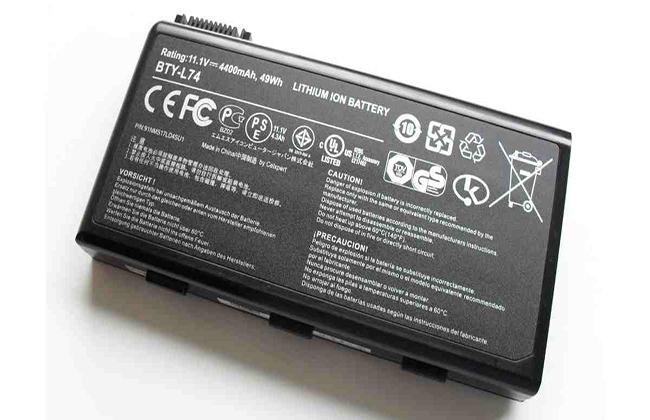
Local manufacturers have expressed concerns as Bangladesh Computer Council (BCC) has initiated a move to use imported lithium-ion batteries for its Info-Sarker phase-3 project for expanding the digital network of the government to union level.
They claimed that it may harm the environment since there is no proper recycling system for lithium-ion batteries in the country, reports UNB.
According to them, the use of the lithium-ion batteries would create a great risk for the environment while the locally-produced “deep cycle tubular lead acid battery” could serve the same purpose without any risk as it has proper recycling management locally.
About the issue, General Secretary of Bangladesh Poribesh Andolon (BAPA) Sharif Jamil said his organisation has been very concerned about the growing wastes of electronic and digital products since there is no comprehensive or inclusive management to check their environmental risk and pollution.
”t would be totally unwise to allow the use of any product—either it is battery or electronic goods—in any project without ensuring their proper recycling management,” he said adding that BAPA has long been asking for the enactment of law to check digital pollution as the use of battery is growing fast in different products like mobile, auto-rickshaw and other things.
Earlier, the BCC implemented Info-Sarker Phase-1 to expand digital network from capital Dhaka to district level and the Phase-2 project to expand the network to the upazila level, officials said adding the current Info-Sarker Phase-3 project is being implemented to take the facilities to union level.
Project director and joint secretary to the ICT Division Dr Bikarna Kumar Ghosh said the phase-3 project is nearing completion as the backbone network has been installed already connecting 2,500 unions and 1,000 police stations across the country.
Only 100 unions are there for the job and it will be completed soon, he said.
Under the phase-3 project, officials sources said, the BCC moved to procure huge lithium-ion batteries to ensure the uninterrupted operation of the services.
But the local battery manufacturers who want to play a role in the digitization project with their involvement said the import of lithium-ion batteries would be only the “waste of foreign currency in addition to affecting the environment as the same purpose could be served by locally-produced ”deep cycle tubular lead-acid battery” without any risk, they added.
”Our batteries won’t create any risk for the environment as we’ve a proper recycling system with strict government guidelines,” said Munawar Misbah Moin, President of Accumulator Battery Manufacturers and Exporters Association of Bangladesh (ABMEAB), a national business body representing the local battery industries.
Misbah claimed that if a local battery is used, it would cost Tk 15 crore while the imported battery will cost Tk 45 crore, a triple of the expense.
He said the ABMEAB has already appealed to the BCC to reconsider the move expressing the concerns of the local battery manufacturers about the move.
In a letter, the ABMEAB said the locally-produced deep cycle tubular lead acid batteries could be used in the project as an alternative to the proposed lithium-ion batteries as the local products are currently used in more than 50,000 villages with 5 years’ service warranty.
Such local batteries could easily be used for 7-8 years, said the ABMEAB adding that there is no adequate technical manpower to fix the problems of imported lithium-ion batteries as this was made of very critical technology.
”The service for the lithium-ion batteries is not available in the country as technical manpower is yet to be created to provide it,” it said.
Secondly, the ABMEAB said, there is no recycling arrangement in the country for the lithium-ion batteries while the local manufacturers have already built recycling plants for local deep cycle tubular lead acid batteries.
So, there is a possibility to dump such lithium-ion batteries here and there, creating environmental hazards as there no directive in the procurement guideline in this regard, said the ABMEAB.
The BCC tender notice also included the supply of unserviceable value regulated lead acid (VRLA) batteries for which no guideline was given in the notice.
- we urge the BCC to allow the participation of local manufacturers in the tender process to ensure the use of the environment-friendly battery in the Info-Sarker project phase-3,” said the local battery manufacturers.
Contacted project director and joint secretary of the ICT Division Dr Bikarna Kumar Ghosh said the imported batteries were chosen for the project on the basis of a technical committee’s recommendations.
Lithium-ion batteries need a lesser space than what the local ones do, he said, adding that the suppliers would be responsible for recycling and maintenance support.
Info-Sarker phase-3 project
Sources said the BCC under the Information and Communication Technology (ICT) Division launched a $255.04 million (equivalent to Tk 2154 crore) project tiled: Development of National ICT Infra-Network for Bangladesh Government (Info-Sarker) Phase-III” in 2017 to expand the existing digital network to 2600 selected Unions across the country out of the total 4554 unions.
BCC officials said the info-Sarker phase-3 project was undertaken with a number of objectives, including strengthening the capacity of Union Digital Centers (UDCs) to provide connectivity to offices, schools and colleges and ensuring the access to e-services for the country’s rural communities.
Achieving the goal of the National ICT Policy to connect the 1,000 Police officers and support the employment generation through the use of ICT is another objective of the Info-Sarker phase-3 project.
Of the total cost of the project is $255.04 million, the sources said, the Bangladesh government will spend $98.48 million while the Chinese government was supposed to provide $156.56 million.
